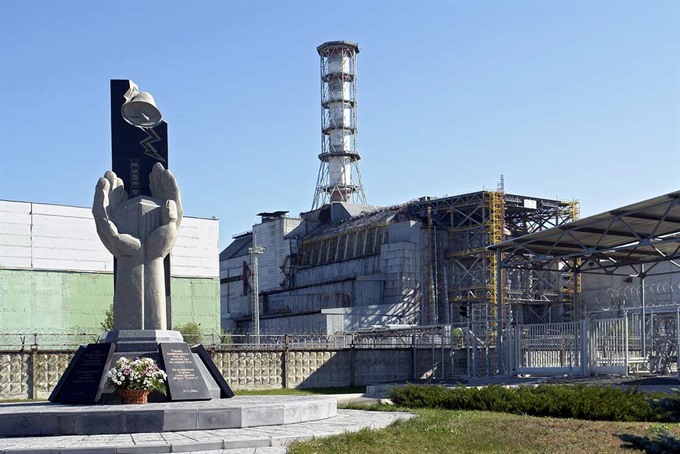 World
World

On April 26, 1986 the world was shaken by a terrible tragedy – an explosion at the Chernobyl nuclear power plant in northern Ukraine (then part of the USSR). The rehabilitation of contaminated territories, revival of the economy and ensuring safe living conditions for people in the affected areas are still pressing issues for the Government of Belarus as one of the most affected countries.
 |
| The Chernobyl Nuclear Power Plant or Chernobyl Nuclear Power Station is a decommissioned nuclear power station near the city of Pripyat, Ukraine, 14.5 km northwest of the city of Chornobyl, 16 km from the Belarus–Ukraine border. Photo courtesy of Belarus’s Ministry of Foreign Affairs |
On April 26, 1986 the world was shaken by a terrible tragedy – an explosion at the Chernobyl nuclear power plant in northern Ukraine (then part of the USSR). This accident became the worst nuclear catastrophe in human history.
The explosion caused the release of large quantities of radioactive materials into the atmosphere that spread over the western USSR and Europe. This radioactive contamination affected the lives of millions of people, and the world is still living with its consequences.
The Chernobyl accident is considered the most disastrous nuclear power plant accident in history, both in terms of cost and casualties. It is one of only two nuclear energy accidents classified as a level 7 event (the maximum classification) on the International Nuclear Event Scale, the other being the Fukushima Daiichi nuclear disaster in Japan in 2011.
Approximately 100,000 sq.km of land were significantly contaminated with fallout, with the worst-hit regions being in Belarus, Ukraine and Russia. Slighter levels of contamination were detected over all of Europe except for the Iberian Peninsula.
The legacy of Chernobyl is of particular significance for Belarus. Despite the fact that the nuclear power plant was located on the territory of Ukraine, not far away from the city of Pripyat, more than 70 per cent of radionuclides settled in Belarus. Around 66 per cent of the total territory of Belarus—more than 13 million hectares—were contaminated with fallout, mostly cesium-137.
On April 27, 1986, the day after the disaster happened, the city of Pripyat (47,500 people) was evacuated, and in the following days the entire population of the 10-kilometer zone around the Chernobyl nuclear power plant followed. During May 1986, more than 116,000 people were resettled from 188 settlements in a 30-kilometer exclusion zone around the station. Today, there is a 30-kilometer zone around the Chernobyl accident, called the Exclusion Zone, where residence is prohibited due to the high level of radiation.
In 2016 the United Nations General Assembly passed a resolution recognising the persistent legacy of the Chernobyl disaster and empowering the United Nations system to take meaningful steps aimed at achieving the Sustainable Development Goals in the Chernobyl-affected regions and communities. The United Nations General Assembly proclaimed April 26 as International Chernobyl Disaster Remembrance Day.
The Republic of Belarus can share with the world unique knowledge and experience in dealing with such disaster, with insights on permissible doses, zoning and people’s psychological rehabilitation.
In order to overcome the long-term consequences of the Chernobyl disaster, in the middle of the Exclusion Zone Belarus created the State Radiation and Ecology Reserve “Polessie”, which marks its 30th anniversary this year. The Ecological Reserve covers an area of 216,000 hectares and contains 96 abandoned settlements, where more than 22,000 people lived before the accident. Reserve “Polessie” was created to enclose the territory of Belarus most affected by radioactive fallout from the Chernobyl disaster as well as for radiobiological and ecological research. Belarusian scientists use the Ecology Reserve as a site for research on the effect of radiation on plants, animals and environment itself
The rehabilitation of contaminated territories, revival of the economy and ensuring safe living conditions for people in the affected areas are still pressing issues for the Government of Belarus as one of the most affected countries. We believe that there is still room for international cooperation on Chernobyl.
The Republic of Belarus appeals to the world community to bear in mind awful long term consequences caused by the most disastrous nuclear power plant accident in history and admires those noble individuals, governments and international organisations that have remained compassionate and focused on the plight of the victims of Chernobyl over the last 30 years.—Belarusian Ministry of Foreign Affair